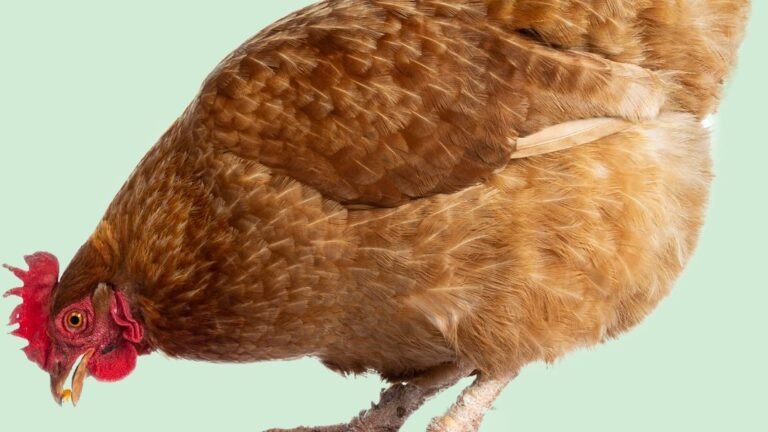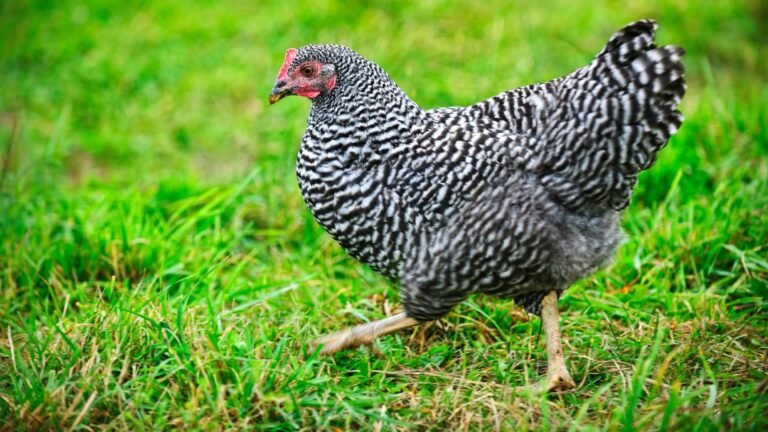Your chicken might have a nosebleed due to these six reasons. This article will explore and explain them in detail, providing you with valuable insights to take care of your chicken’s health.
Nosebleeds can be a cause for concern in chickens, as they may indicate an underlying health issue. Understanding the reasons behind these nosebleeds is crucial in ensuring the well-being of your flock. We will delve into six possible causes of nosebleeds in chickens, shedding light on each one individually.
By identifying the root cause, you will be better equipped to take the necessary steps to address the issue and promote a healthier environment for your chickens. Let’s explore these reasons and provide effective solutions to prevent or treat nosebleeds in your beloved poultry companions.
Hemorrhagic Nosebleeds: An Uncommon Occurrence
htmlNosebleeds are a common occurrence in humans, but have you ever wondered if chickens can experience the same thing? While it may seem unlikely, chickens can indeed have nosebleeds, although they are considered to be an uncommon occurrence. In this article, we will explore the reasons behind hemorrhagic nosebleeds in chickens and provide valuable insights into understanding the causes, identifying the symptoms, and providing immediate care for your feathered friends.
Understanding The Causes
Chickens, just like humans, can experience nosebleeds due to a variety of underlying causes. It is crucial to understand these causes in order to tackle the issue effectively. Some common triggers of hemorrhagic nosebleeds in chickens include:
- High blood pressure: Chickens with high blood pressure may be more prone to nosebleeds as the increased pressure can cause blood vessels in the nasal cavity to burst.
- Injury or trauma: Accidents, fights, or rough handling can result in injuries to the chicken’s nasal passages, leading to nosebleeds.
- Infections: Respiratory infections or diseases can cause inflammation and irritation in the nasal cavity, making it more susceptible to bleeding.
- Foreign objects: Sometimes, chickens may accidentally inhale or ingest sharp objects that can puncture their nasal tissue, causing nosebleeds.
- Coagulation disorders: Chickens with coagulation disorders or deficiencies may experience frequent nosebleeds as their blood cannot clot properly.
- Tumors or polyps: Uncommonly, tumors or polyps in the nasal cavity can cause chronic nosebleeds in chickens, especially in older birds.
Identifying The Symptoms
In order to provide appropriate care for your chicken, it is essential to be able to identify the symptoms of a nosebleed. While a visual presence of blood from the nostrils is the most obvious sign, other symptoms may include:
- Frequent sneezing
- Breathing difficulties or wheezing
- Discharge from the nose
- Loss of appetite or decreased activity levels
- Blood-stained feathers around the nostrils
Keep a close eye on your chicken’s behavior and appearance, as prompt recognition of these symptoms can help you take immediate action.
Providing Immediate Care
If you notice that your chicken has a nosebleed, immediate care is crucial to prevent further complications. Here are some steps you can take:
- Isolate the chicken: Move the affected chicken to a quiet and calm environment to minimize stress and potential sources of irritation.
- Keep the chicken upright: Position the chicken in an upright position to reduce blood flow to the head and help clotting.
- Clean the nostrils: Gently clean any blood or discharge surrounding the nostrils using a soft cloth or tissue.
- Apply pressure: Using a clean cloth or cotton pad, apply gentle pressure to the affected nostril for a few minutes to encourage clotting.
- Monitor and seek veterinary care: Observe your chicken closely for any recurrence of nosebleeds, persistent symptoms, or signs of distress. If the nosebleeds continue or worsen, it is wise to consult a veterinarian for a thorough evaluation and appropriate treatment.
Remember, while nosebleeds in chickens are uncommon, they should not be ignored. By understanding the causes, recognizing the symptoms, and providing immediate care, you can ensure the well-being and health of your feathery companions.
Environmental Triggers: Influencing Chicken Health
Environmental Triggers: Influencing Chicken Health
When it comes to the health of your chicken, a variety of factors can contribute to their overall well-being. One crucial aspect that often goes overlooked is the impact of environmental triggers. Understanding how temperature and humidity extremes, air quality and dust particles, and the effects of stress can affect your poultry’s health is essential for maintaining a thriving flock. In this article, we will explore these environmental triggers and their potential roles in causing nosebleeds in chickens.
H3temperature And Humidity Extremes/h3
Birds, including chickens, are sensitive to extreme changes in temperature and humidity. These fluctuations can put stress on their respiratory systems and lead to nosebleeds. High temperatures can cause blood vessels in the nasal passages to expand, increasing the likelihood of bleeding. On the other hand, during colder months, dry air can irritate the delicate nasal tissues, leading to nosebleeds as well. Therefore, maintaining a suitable temperature and humidity level within the coop is essential to prevent nosebleeds in your chickens.
H3air Quality And Dust Particles/h3
Poor air quality and the presence of dust particles can have detrimental effects on chicken health. When chickens inhale polluted air or dust, it can irritate their nasal passages, potentially leading to nosebleeds. Dust particles can contain various allergens and irritants that can trigger respiratory issues and nosebleeds. Keeping the coop clean and well-ventilated is crucial to minimize the accumulation of dust and ensure a healthy environment for your chickens.
H3the Impact Of Stress/h3
Stress is another significant factor that can contribute to nosebleeds in chickens. When chickens experience stressors such as overcrowding, predator threats, inadequate nutrition, or sudden environmental changes, their immune system weakens, making them more susceptible to health issues, including nosebleeds. Ensuring your chickens are provided with spacious living conditions, a balanced diet, and a consistent and calm environment can help reduce stress levels and minimize the occurrence of nosebleeds.
Nutritional Deficiencies: A Surprising Cause
Nutritional deficiencies may not be the first thing that comes to mind when you notice your chicken experiencing nosebleeds. However, it is a surprising cause that often goes unnoticed. Just like humans, chickens require a balanced diet to maintain optimal health. In this article, we will explore the connection between nutritional deficiencies and nosebleeds in chickens, shedding light on why it’s important to pay attention to the dietary needs of your feathered friends.Essential Vitamins And Minerals For Chicken Health
When it comes to the health of your chickens, ensuring they receive the proper nutrients is essential. A deficiency in certain vitamins and minerals can weaken their immune system, making them more prone to nosebleeds. Some of the key nutrients that are vital for chicken health include:- Vitamin K: This vitamin plays a crucial role in blood clotting and preventing excessive bleeding. Without enough vitamin K in their diet, chickens are more likely to experience nosebleeds.
- Vitamin C: Known for its immune-boosting properties, vitamin C helps strengthen blood vessels and prevent them from becoming fragile. Lack of this vitamin can lead to increased susceptibility to nosebleeds.
- Iron: Iron deficiency can lead to anemia in chickens, causing their blood vessels to become weak and prone to bleeding. Adequate iron intake is necessary to maintain healthy blood circulation.
- Vitamin A: This vitamin is essential for maintaining the integrity of the respiratory system and preventing the occurrence of respiratory infections that could lead to nosebleeds.
Imbalance In Diet And Nosebleed Incidence
An imbalance in a chicken’s diet can significantly contribute to the incidence of nosebleeds. A diet lacking in essential nutrients can weaken their overall health and leave them vulnerable to nosebleeds. Here are some factors that can result in a nutritional imbalance:- Poor-quality feed: Using low-quality feed can lead to deficiencies in essential nutrients, increasing the likelihood of nosebleeds in chickens.
- Incorrect ratios: Incorrectly balancing the ratios of different nutrients in their diet can create an imbalance, negatively impacting their overall health and increasing the risk of nosebleeds.
Common Respiratory Infections In Chickens
Role Of Bacterial And Viral Infections
Respiratory infections in chickens can be caused by various bacteria and viruses. These microscopic organisms can invade the respiratory system, leading to symptoms like coughing, sneezing, nasal discharge, and in some cases, nosebleeds. Understanding the role of bacterial and viral infections is crucial in diagnosing and treating respiratory issues in chickens.Bacterial infections, such as Mycoplasma gallisepticum and Escherichia coli, are common culprits behind respiratory problems in chickens. These infections can weaken the bird’s immune system and make them more susceptible to other illnesses. On the other hand, viral infections like avian influenza and infectious bronchitis also target the respiratory system, causing inflammation and damage to the delicate tissues.Contagious Nature And Prevention Strategies
It’s important to note that respiratory infections in chickens can spread easily, especially in crowded and unsanitary conditions. The contagious nature of these infections makes it crucial to implement preventive measures to protect your flock. Here are some strategies you can employ:Proper Hygiene and Sanitation Practices
Maintaining a clean environment is essential in preventing the transmission of respiratory infections in chickens. Regularly clean and disinfect your coop, nesting boxes, and waterers. Remove any droppings or soiled bedding promptly. Providing fresh and clean bedding will also help reduce the risk of bacterial and viral contamination.Isolation and Quarantine
If you suspect a chicken in your flock has a respiratory infection, it’s crucial to isolate the affected bird to prevent further spread. Set up a separate, well-ventilated area where you can keep the sick chicken until they recover or receive appropriate treatment. Additionally, if you plan to introduce new birds to your flock, quarantine them for a few weeks to ensure they are not carrying any respiratory infections.Vaccination
Vaccination can play a vital role in preventing respiratory infections in chickens. Consult with your veterinarian to determine the appropriate vaccination schedule for your flock. Vaccines for common respiratory diseases like infectious bronchitis and Newcastle disease are available and can significantly reduce the risk of outbreaks.Nutrition and Stress Management
Providing a well-balanced diet and managing stress levels in your flock can help strengthen their immune systems, making them more resilient against respiratory infections. Ensure your chickens have access to high-quality feed, fresh water, and appropriate supplements if needed. Reduce stress factors such as overcrowding, extreme weather conditions, or sudden changes in the flock’s environment.By understanding the role bacterial and viral infections play in respiratory issues in chickens and implementing appropriate prevention strategies, you can minimize the risk of your flock experiencing nosebleeds and other respiratory symptoms. Taking proactive measures to maintain hygiene, isolate sick birds, vaccinate, and provide optimal nutrition will go a long way in keeping your chickens healthy and thriving.External Injuries And Physical Trauma
External injuries and physical trauma can be a common cause of nosebleeds in chickens. Just like humans, chickens can also experience accidents or injuries that result in bleeding from the nose. It’s crucial for chicken owners to understand the various reasons behind these nosebleeds, as it helps them provide the necessary care and treatment for their feathered friends.
Pecking Order And Aggression
One of the primary reasons why chickens may experience nosebleeds is due to aggressive behavior within the flock. Chickens establish a pecking order, which determines their social hierarchy. This pecking order often involves aggressive pecking and fighting, where dominant chickens assert their dominance over lesser ones. When a chicken receives a blow to its head or face during these confrontations, it can lead to external injuries and subsequent nosebleeds.
Improper Handling Or Accidents
Improper handling can also lead to external injuries in chickens. Sometimes, during routine care or maintenance activities, such as catching or carrying chickens, accidents may occur. Mishandling or dropping a chicken can cause physical trauma, resulting in injuries to the chicken’s head or facial region. This, in turn, can lead to nosebleeds.
Parasitic Infestations: Often Overlooked
While nosebleeds in chickens may seem like a rare occurrence, one often overlooked cause is parasitic infestations. These tiny intruders can take a toll on your flock’s health and well-being, leading to various symptoms, including nosebleeds. In this section, we’ll delve into common parasites that affect chickens and their role in triggering nosebleeds. By understanding these pesky invaders and learning how to manage infestations effectively, you can take proactive steps to prevent nosebleeds and keep your chickens healthy.
Understanding Common Parasites In Chickens
When it comes to parasites in chickens, a few culprits tend to cause the most trouble. Understanding their characteristics and the harm they can inflict on your flock is essential in preventing nosebleeds. Here are three common parasites you should be familiar with:
- External Parasites: External parasites, such as mites and lice, are often visible to the naked eye. These tiny critters attach themselves to the feathers, skin, or comb of the chicken, causing irritation and potential wounds. In severe infestations, these parasites can weaken the blood vessels, leading to nosebleeds.
- Internal Parasites: Internal parasites, including worms like roundworms, tapeworms, and coccidia, reside inside your chicken’s body. They feast on blood, tissues, and vital nutrients, compromising your chicken’s health and immunity. As these parasites multiply and spread, they can cause severe damage to your flock’s internal organs, including the nasal cavity, often resulting in nosebleeds.
- Airborne Parasites: While not the most common among chicken parasites, airborne parasites like gapeworms can impact your flock’s respiratory system. These parasites reside in the trachea and lungs of infected birds, obstructing air passages and causing respiratory distress. Chronic respiratory issues can lead to increased pressure in blood vessels, leading to nosebleeds as a result.
Managing Parasite Infestations To Prevent Nosebleeds
Preventing nosebleeds caused by parasitic infestations requires proactive measures to manage and control these pesky intruders. Here are four effective strategies to keep your flock free from parasites:
- Regular Health Checks: Implement a routine health checking schedule to keep tabs on your chickens’ well-being. This includes inspecting their feathers, skin, and comb for any signs of mites, lice, or skin lesions. Regular fecal testing for internal parasites is also crucial. By detecting infestations early, you can take swift action to prevent nosebleeds and other related health issues.
- Proper Hygiene Practices: Maintain a clean and dry environment for your chickens, focusing on the coop and surrounding areas. Regularly clean and disinfect their living space, paying special attention to perches, bedding, and nesting boxes. This practice helps eliminate potential habitats for parasites, reducing the risk of infestation.
- Quarantine New Birds: Whenever introducing new birds to your flock, quarantine them first for a period of time. This allows you to closely monitor their health and prevent any potential transfer of parasites to your existing flock. A thorough inspection during the quarantine period can help detect and treat infestations before they spread.
- Implement Effective Treatment: If infestations occur, prompt and appropriate treatment is crucial. Consult with a veterinarian to determine the best parasite control products suitable for your chickens. Effective treatments may include topical sprays, dusting powders, or oral medications. Follow the recommended dosage and application instructions to ensure optimal results and prevent reinfection.
By understanding common parasites that affect chickens and implementing proper management practices, you can significantly reduce the chances of nosebleeds caused by parasites in your flock. Stay vigilant, prioritize hygiene, and provide your chickens with the care they need to lead healthy, nosebleed-free lives.
Conclusion
Nosebleeds in chickens can be caused by a variety of factors, and it’s important to identify the root cause to ensure the health and well-being of your flock. From environmental irritants to respiratory infections, understanding these reasons is crucial in addressing the issue promptly.
By keeping a close eye on your chickens and implementing appropriate preventive measures, you can minimize the occurrence of nosebleeds and maintain a healthy environment for your feathered friends. Stay informed and proactive to keep your chickens happy and nosebleed-free!



